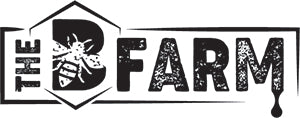If you’re a beekeeper in Massachusetts, you know that the changing seasons play a huge role in beekeeping and pollination. The state’s dynamic weather patterns can bring challenges but also opportunities for managing hives and supporting pollinators.
Understanding how Massachusetts seasons affect beekeeping and pollination is key to maintaining healthy colonies and maximizing honey production. Fortunately, with a little planning, you can handle beekeeping no matter the season.
Spring: Bees Emerge and Start Pollinating
Plants begin to bloom in spring, and bees will emerge from their winter clusters ready to work. The bees build up their numbers and forage for nectar and pollen as soon as the flowers bloom. If you notice your colony not producing enough workers, you can invest in bee nucs to increase your numbers quickly.
Jumpstart your colony with the bee nucs for sale at The B Farm! We provide premium bee nucs in Billerica, Massachusetts, that are perfect for kickstarting beekeeping.
Summer: The Sweet Rewards of Honey Production
Warmer months in Massachusetts provide the peak time for honey production. July and August bring abundant nectar flows as wildflowers, such as goldenrod and clover bloom, across the state. During this season, bees will be working tirelessly, converting nectar into honey and storing it for the cold months. You’ll want to monitor honey stores and check hive health to prevent pests like varroa mites from wreaking havoc.
Fall: Navigating Extreme Weather Effects
Massachusetts is no stranger to fluctuating and extreme weather conditions. Hot, dry summers can limit nectar flow, while wet springs might delay early floral blooms. These changes directly impact the availability of food for the bees. Consider installing entrance reducers and insulating hives during fall to protect your colony from the harsh Massachusetts winters.
Winter: Quiet and Reduced Activity
Temperatures drop well below freezing in Massachusetts, and bees cluster together to keep warm. Expect reduced activity during the winter, as bees rely on their honey reserves and ensure the queen survives into spring.
Check hive entrances regularly to make sure snow or ice isn’t blocking airflow. The goal during these months is survival—maintaining a strong, healthy colony until spring arrives again.
Learning What To Expect in Each Season
Being intentional with seasonal beekeeping practices in Massachusetts is the key to thriving hives. Learning how the seasons affect beekeeping and pollination in Massachusetts can help you meet your bees’ needs throughout the year. These mindful practices not only protect your colony and promote its health but also lead to abundant harvests, ensuring that both you and your bees flourish together.
